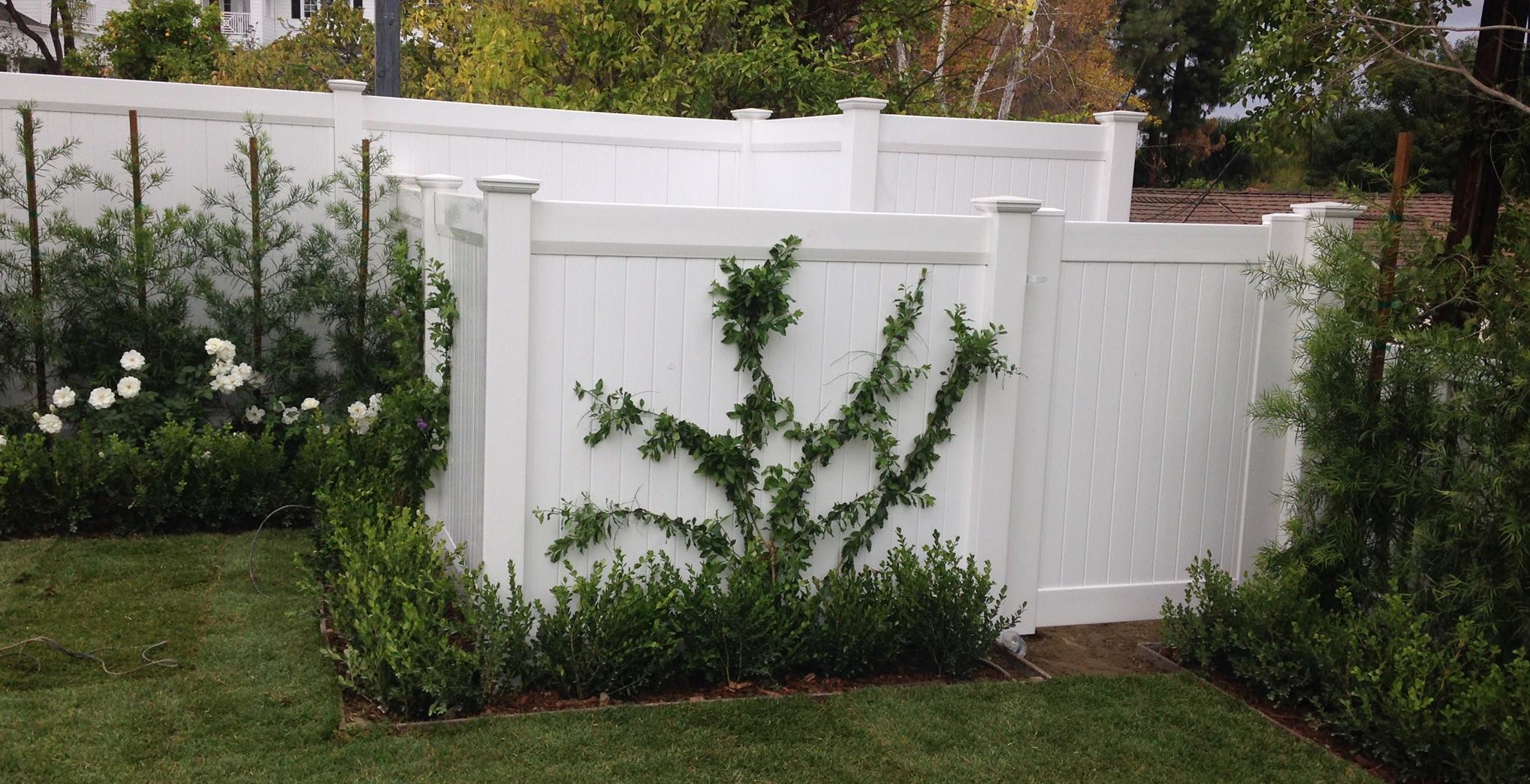Vinyl fence makes an attractive addition to the outdoor living space. Although vinyl is a more recent variety of outdoor fence materials, homeowners are increasingly choosing vinyl. A good fence will make a strong statement for your home. Perhaps you are considering what type of fence to install: vinyl or wood. Let’s compare vinyl and wood fences.
Advantages of Vinyl Fencing
Vinyl fencing is one of the most durable options. It does not rot, does not crack, does not deform, and does not splash. It is also weather resistant. Extremely high or low temperatures will not adversely affect vinyl. Scratches on vinyl fencing are not easy to spot, unlike wood. Vinyl fencing does not fade over time, unlike wood. After installation, the vinyl fence will last several years, which makes it an attractive choice for many. It is also a type of low maintenance fence.
Cleaning of a vinyl fence will be a simple job: all you need is some water and detergent. This makes it a cost-effective option for fencing in general. Vinyl is also light, which makes the job easier. The lightweight material also helps reduce installation costs.
For those who appreciate a wide selection of colors when it comes to fencing, vinyl is perfect. Vinyl is available in virtually unlimited color choices. This facilitates the implementation of any landscape design ideas that you plan. Vinyl fencing is also more versatile than wood. The fence can be made so that it resembles the texture of wood, if necessary, but with all the advantages of vinyl.
Vinyl fencing is much more expensive than wood. Initial financial investments for this type of fence exceed the costs of wooden fencing. However, the maintenance costs for vinyl fencing are much lower than for wood. Although vinyl can be recycled, it is not biodegradable.
Wood is heavier than vinyl: this makes the job difficult. It also increases installation costs. Wooden fencing requires regular maintenance to maintain it in good condition. Periodic varnish or tinting should be done to protect the wood. Painting, grinding or staining may also be necessary. Wooden fencing is not as durable as vinyl. Wooden fences are prone to tearing caused by extreme weather conditions. Wood can rot or form mold, unlike vinyl. Manufacturers don’t guarantee wooden fencing, unlike vinyl.

I loved how you mentioned that vinyl fencing is durable! My husband and I just recently moved into a new home without a fence in the backyard and we get worried when our children play outside. We’ll have to look into getting a vinyl fence installed for our backyard!
I like that you mentioned that vinyl fencing only needs water and detergent for cleaning. I’ve been thinking about getting fences because stray raccoons have been digging through my trash lately and cleaning up after them is starting to be tedious. I will definitely consider getting vinyl for the fence since it’s seems like a long-lasting material.
My uncle is looking for a fence that can complement the aesthetic of his modern-themed home. I find it amazing to learn that vinyl fencing provides durability and aesthetics that won’t fade over time. I think this is the fence material my uncle has been looking for! I should suggest this and ask him to look for a fence contractor to have it installed on his home.